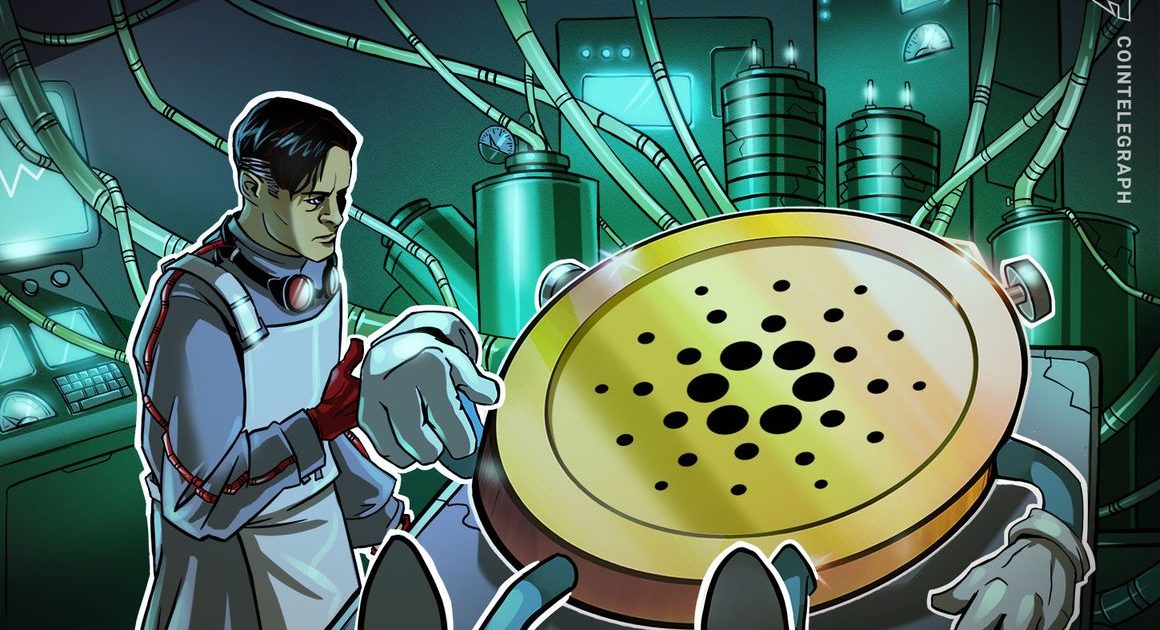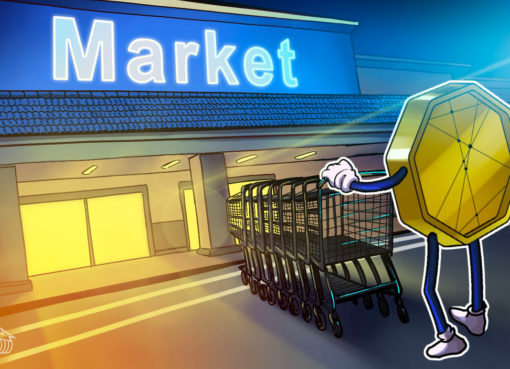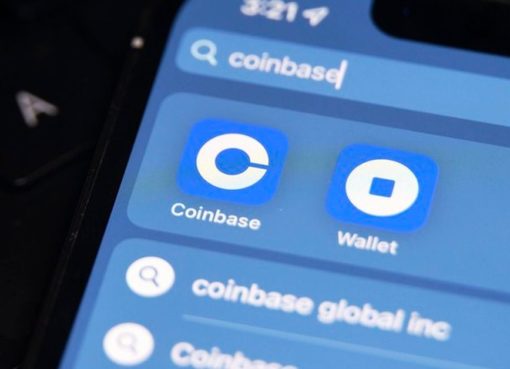The price of Cardano risks falling by over 20% in August as it enters a breakdown stage of a classic technical pattern that could be offset by some promising fundamentals.
ADA price risks falling to June lows
Dubbed a bump and run reversal (BARR), the pattern develops when excessive speculation drives the price higher quickly, eventually leading to a “bull trap” situation. As it forms, the price trend undergoes three stages — lead-in, bump and run — as shown below.
The lead-in stage sees the price trending upward in an orderly fashion — without any excess speculation. But the bump stage witnesses a sharp advance in price, followed by a complete wipeout of the spike.
In the run stage, the price breaks below the support from the lead-in trendline. Currently, Cardano (ADA) appears to have entered the run phase of its BARR pattern, as shown below.
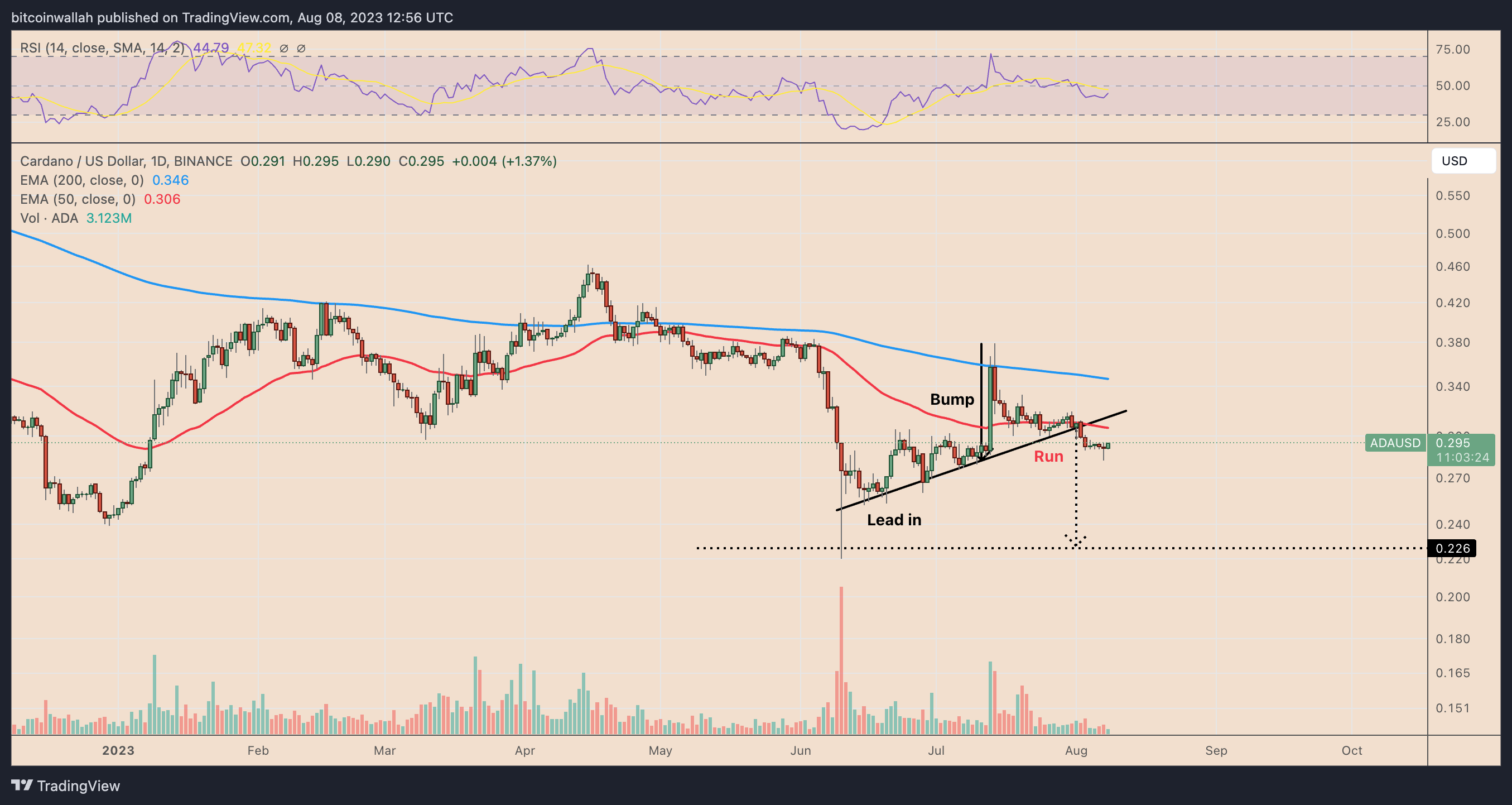
If the pattern is confirmed, BARR’s downside target is measured after subtracting the breakdown point at the support line from the pattern’s maximum height. That brings ADA’s price target near $0.22 in August or early September, down 20% from current levels.
Conversely, an ADA rebound can reach the 50-day exponential moving average (EMA) near $0.30 in August, up 5% from the current price.

Furthermore, flipping the wave into support could see a further runup toward the 200-day EMA near $0.34, up around 30% from current price levels.
Whales and sharks buy ADA price dips
On-chain fundamentals, however, could offset the bearish risks for Cardano.
Notably, whale and shark wallets holding between 100,000 and 1 million ADA have accumulated $116.1 million worth of Cardano since May 2023, raising their net holdings to the highest levels since September 2022.
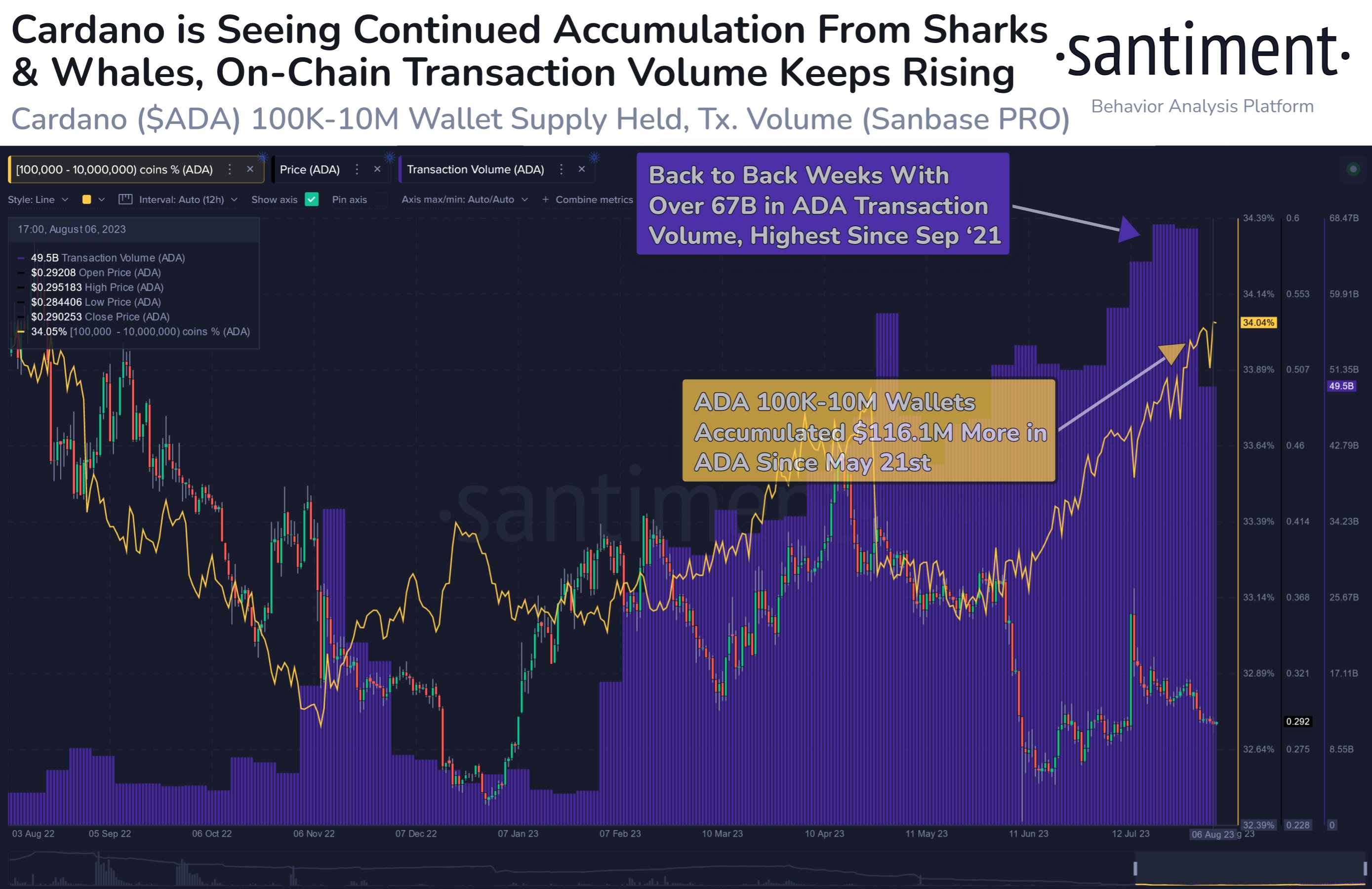
This period of Cardano accumulation coincides with its 25% price decline caused by regulatory fears in the United States.
Related: Here’s what happened in crypto today
Simply put, ADA whales and sharks have bought the price dip and are betting on future gains.
Cardano TVL, DApp transactions grow
Additionally, the ADA accumulation period happened alongside growth in Cardano’s key network metrics in the second quarter. Namely, the total value locked (TVL) grew 9.7% quarter-on-quarter (QoQ), while average daily transactions for decentralized applications (DApps) jumped 49% QoQ.

Stablecoins fueled this TVL and DApp transaction movement, growing 34.9% QoQ — from $10.0 million in Q1 to $13.5 million in Q2. This growth in network activity should add to the upward pressure for ADA, which serves as a fee settlement and staking token in the Cardano ecosystem.
This article does not contain investment advice or recommendations. Every investment and trading move involves risk, and readers should conduct their own research when making a decision.

